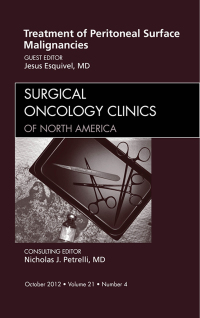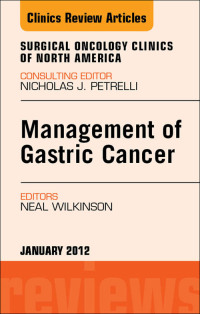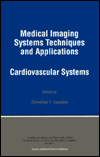-79%
Management of Gastric Cancer: A Comprehensive Guide
Edited by Neal Wilkinson, MD
The intricacies of gastric cancer management are meticulously explored in this esteemed issue of Surgical Oncology Clinics of North America. Renowned experts provide an in-depth analysis of the current landscape, offering valuable insights and guidance for clinicians navigating this complex disease.
1. Epidemiology
Understanding the global burden of gastric cancer is paramount. This article delves into its geographical distribution, risk factors, and the impact of environmental and dietary influences. By grasping these epidemiological trends, healthcare providers can tailor prevention and screening strategies effectively.
2. Genetics and Prophylactic Surgery
The role of genetics in gastric cancer pathogenesis is gaining increasing recognition. This article examines the emerging landscape of genetic screening, counseling, and prophylactic surgery. It outlines the indications, techniques, and potential benefits of preventative measures for individuals at high risk.
3. Endoscopic Diagnosis & Staging
Accurate diagnosis and staging are essential for optimal patient outcomes. This article explores the latest endoscopic techniques, including narrow-band imaging and endoscopic ultrasound, and discusses their applications in detecting and characterizing gastric cancer. It provides guidance on interpreting endoscopic findings and determining appropriate management strategies.
4. Gastric Stromal Tumors (GIST)
GISTs, a distinct type of gastric cancer, require specialized management. This article reviews the clinical presentation, diagnostic modalities, and therapeutic options for GISTs. It covers the latest advances in targeted therapies and surgical interventions, empowering clinicians to make evidence-based decisions.
5. Management of Early Stage Gastric Cancer
Early detection and prompt treatment are crucial for improving prognosis in gastric cancer. This article focuses on the endoscopic and surgical approaches for early-stage disease. It discusses the indications, techniques, and outcomes of endoscopic mucosal resection (EMR) and tailored lymphadenectomy, highlighting their role in achieving optimal outcomes while minimizing adverse effects.
6. Laparoscopic Resection Gastric Cancer
Minimally invasive surgical techniques are transforming gastric cancer management. This article explores the benefits and limitations of laparoscopic gastrectomy, comparing it to open surgery. It provides a detailed overview of the surgical steps, technical challenges, and postoperative care, enabling surgeons to make informed decisions regarding the optimal approach for their patients.
7. Gastric Cancer – Eastern Experience
Eastern countries have a significantly higher incidence of gastric cancer, necessitating a distinct management perspective. This article showcases the experience of Eastern surgeons in addressing the unique challenges posed by this disease in their populations. It highlights cultural factors, patient preferences, and the impact of healthcare systems on treatment strategies.
8. Update of Gastric Cancer Clinical Trials
Ongoing clinical trials are shaping the future of gastric cancer management. This article summarizes the latest research findings, investigating the efficacy and safety of novel therapies, including targeted agents, immunotherapies, and surgical innovations. It keeps clinicians abreast of the most promising advancements in the field.
9. Preoperative and Postoperative Chemotherapy for Gastric Cancer
The role of chemotherapy in gastric cancer is multifaceted. This article reviews the evidence supporting preoperative and postoperative chemotherapy regimens. It discusses the indications, timing, choice of agents, and potential benefits and drawbacks of these therapeutic approaches.
10. Phase I and II Clinical Trials
Phase I and II clinical trials are crucial for evaluating the safety and efficacy of new treatments. This article provides an overview of the ethical principles, design, and conduct of gastric cancer clinical trials. It guides researchers and clinicians in understanding the regulatory requirements and the importance of patient participation in advancing medical knowledge.
Conclusion
This comprehensive issue of Surgical Oncology Clinics of North America serves as an invaluable resource for clinicians navigating the complexities of gastric cancer management. By staying informed of the latest advancements in epidemiology, genetics, diagnosis, surgical techniques, and clinical trials, healthcare providers can optimize patient outcomes and contribute to the ongoing fight against this prevalent disease.
maybe you like these too:
- Practical Radiation Oncology for Surgeons, An Issue of Surgical Oncology Clinics, 1e (The Clinics: Internal Medicine)
- Endoscopic Spine Procedures (Original PDF from Publisher)
- Endoscopic Pituitary Surgery: Endocrine, Neuro-Ophthalmologic and Surgical Management (Original PDF from Publisher)
- Oncology at a Glance (Original PDF from Publisher)










Reviews
Clear filtersThere are no reviews yet.